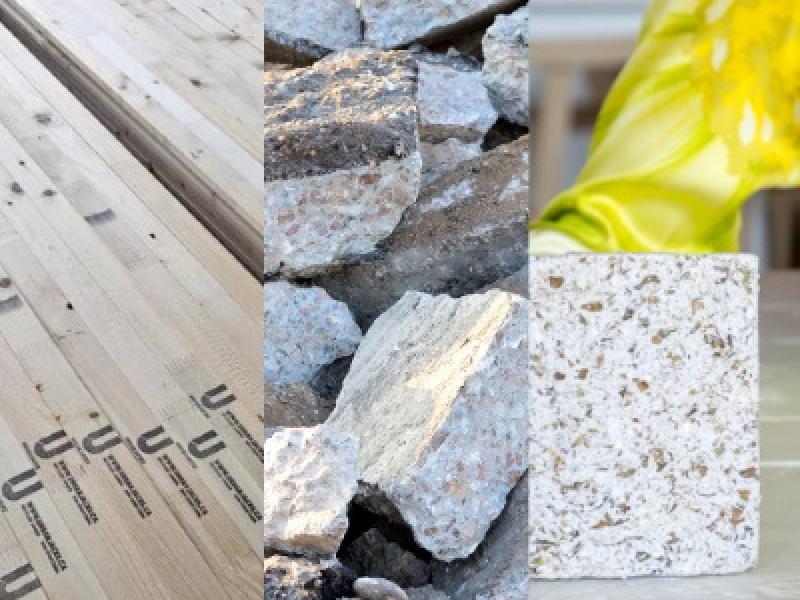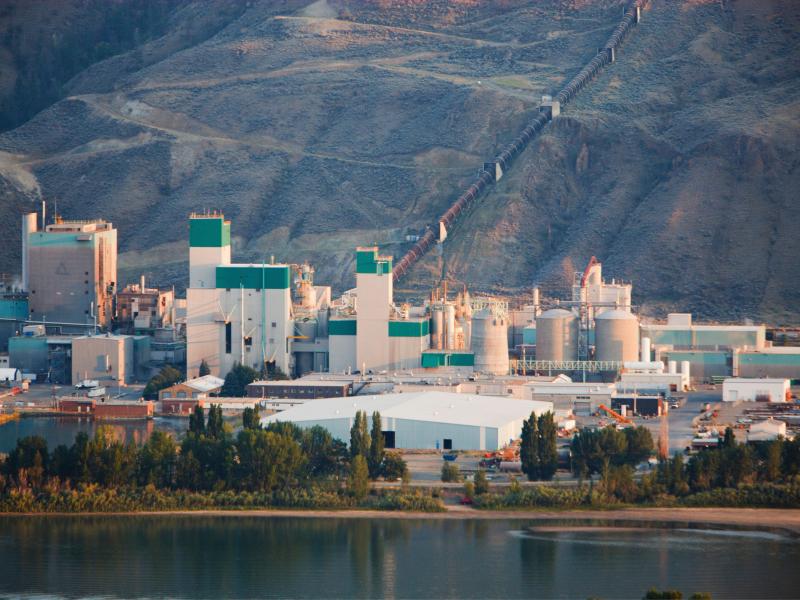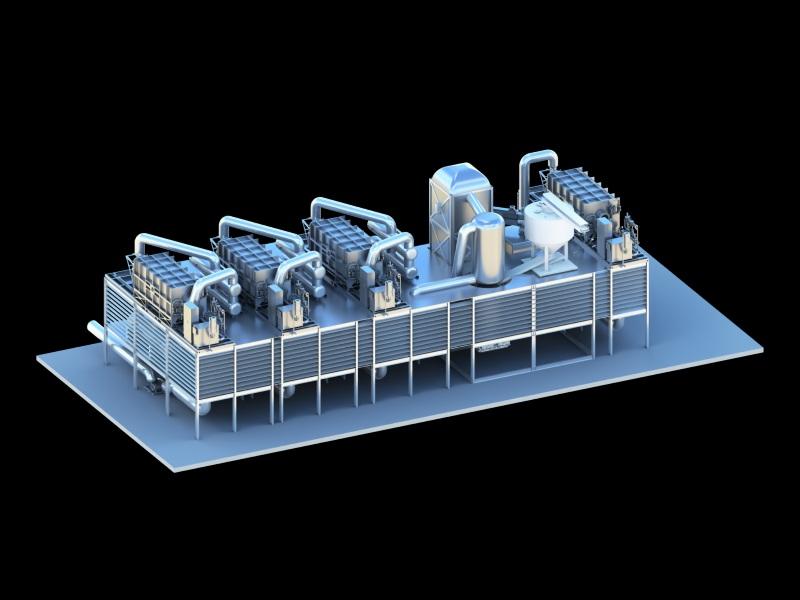Recent Articles
Alliance finds remote work less harmful to environment
Alliance finds remote work less harmful to environment
A study by Alliance Virtual Offices projects 34.3 million tons of greenhouse gas will be produced in 2021 by employees working from home; however, remote work is still better for the environment than working in an office.
Data centres creating green energy booms
• Bisnow
Data centers are a driving force behind developing renewable energy infrastructure. Over the past decade, Georgia has gone from having nearly no renewable energy infrastructure to being one of the top 10 markets for solar installation in the U.S.
How WeWork changed the idea of an office
WeWork spaces work. They are well designed and do not feel like old-fashioned offices. I had been in many “serviced offices” like those offered by competitor Regus, which were drywall boxes with plastic laminate desks and very little charm.
Ontario mass-timber plant most automated in world
Ontario is now home to what is claimed to be the most fully automated mass-timber plant in the world, with Element5’s new St. Thomas factory now industry-certified and running at full strength.
Climate disasters put museum artifacts at risk
B.C.’s wildfires threatened valuable collections and caused Canadian cultural institutions to rethink how to react to climate disasters. As ash fell onto the Westbank Museum in West Kelowna, B.C., curators had to review which artifacts to rescue.
Many insurers refuse to drop oil and gas
The insurance industry may need to accelerate its efforts to exit the oil and gas industry to fulfill its commitment to combat climate change. To date only one insurer — Australia’s Suncorp — has promised to take “significant action” in this regard.
Insurers focus on physical risk during weather events
• GreenBiz
As weather events continue to batter properties around the world, the connection between weather and climate change has become inescapable. When it comes to events like the freeze in Texas and floods in Europe, insurers think about physical risk most.
Swiss Re signs $10M carbon capture deal
• Bloomberg • Environmental Leader
Reinsurance giant Swiss Re has signed the world’s first long-term agreement to take carbon directly out of the air. The contract with Climeworks AG, one of the world’s leading direct air-capture startups, will net the climate technology company $10 million.
World experiencing renewable energy revolution
• Environmental Leader • SustainableBiz
As climate poses a threat to global ecologies and economies, the future belongs to companies that can generate electricity from low or no carbon sources. Transitioning to wind, solar and hydropower presents both opportunities and challenges.
Best cities for low carbon emissions aren’t the tallest
As the world continues to urbanize, cities are reaching new heights every year. The pursuit of such lofty living spaces follows the conventional thinking that it’s more sustainable for growing cities to build up than build out.
Granite REIT announces $500M green bond offering
Granite Real Estate Investment Trust announced its subsidiary Granite REIT Holdings Limited Partnership has priced an offering of C$500 million aggregate principal amount of 2.194 per cent Series 6 senior unsecured debentures, which are being issued as Granite’s second green bond issuance.
CIBC increases sustainable finance target to $300B
• Cision • Globe and Mail
CIBC is aiming to reach net-zero greenhouse gas emissions associated with its operations and financing activities by 2050. The company increased its sustainable finance commitment, promising to deploy $300-billion by 2030, citing “a positive response from clients” to financing for sustainable initiatives.
Municipalities request billions for disaster protection
• CBC
The group representing more than 2,000 municipalities is asking for billions of dollars from the federal government to help cities and towns protect themselves from climate-related events as wildfires, floods, heat waves and droughts increase in intensity.
Taming rush-hour traffic post-pandemic
Rather than ending rush hour, COVID transformed it into something different. The lockdowns of the pandemic gave cities an all-too-brief glimpse of streets free of vehicle congestion, as well as lessons in how to tame the traffic that came back.
Construction industry must prioritize bike riders
• Treehugger • The Star
According to studies, the construction industry is killing a lot of Vulnerable Road Users. The Toronto Star said, “cement trucks were involved in 11 per cent of all pedestrian deaths and more than a quarter of all cyclist deaths.”
Combatting infections with visible light technology
The World Health Organization defines healthcare-associated infections as “infections occurring in a patient during the process of care in a hospital or other healthcare facility, which were not present or incubating at the time of admission”.
Biden’s EV targets could open roads to B.C. companies
U.S. President Joe Biden signed an executive order calling for zero-emissions vehicles to make up half of new cars and trucks sold stateside by 2030. America’s efforts may spur growth among B.C.-based companies specializing in electric vehicles.
Carbon auction results between Québec and CARB
• Cision
The 28th auction of greenhouse gas emission units held with the California Air Resources Board (CARB) generated CAD$301 million in revenue for Québec, which will be paid to the Electrification and Climate Change Fund.
Imperial Oil outlines plan to produce plant-based renewable fuel
• Globe and Mail • Global News • Financial Post
Imperial Oil Ltd. plans to build a renewable diesel complex at its Strathcona refinery near Edmonton. The facility will be the largest of its kind in Canada and will use blue hydrogen to produce low-carbon diesel fuel.
SEPA makes recommendations to reach clean energy
As part of its Utility Transformation Challenge initiative, the Smart Electric Power Alliance (SEPA) recommends utilities undergo a series of cultural and business model changes, such as linking executive compensation to carbon reduction goals, to reach a clean energy future.
Calgary becoming centre of Canada’s carbon innovation pivot
In Calgary, where about a third of downtown office space lies empty, a possible way forward for the city centre is taking shape inside a building that once housed the headquarters of oil giant Suncor Energy.
Top Alberta CEOs urge diversification to help province find its place in changing world
While Alberta’s historic oil and gas sector still makes an outsized contribution to the Canadian economy, it has been battered and bruised by seven years of low prices, pipeline protests and cancellations, layoffs and consolidation. The province’s unemployment rate is 8.5 per cent, and close to 30 per cent of downtown Calgary’s office market sits vacant.
Alberta’s long-term unemployment rate – the portion of the population that has been without work for more than a year – is 2.4 per cent, significantly higher than the national average of 1.4 per cent.
Piedmont Lithium, Sayona acquire North American Lithium
Demand for lithium to power North America’s EV and battery storage revolution continues to accelerate, and studies are underway for the manufacturing of lithium chemicals in Québec, which could position the province to become an important lithium hydroxide production centre.
The rush to net-zero could hit the economy as hard as the 1973-74 oil crisis
You own a house that needs repairs, but you’re a lazy penny-pincher who keeps delaying the jobs. A violent rainstorm hits your house, your basement floods and the roof leaks. Suddenly, you’re rushing to arrange hugely expensive overhauls to keep the house livable. The scenario is similar to the one facing our rapidly warming planet.
Sustainability is more than a corporate aspiration
• Forbes
The growth of Chief Sustainability Officers in C-suites and of Sustainability Committees in boardrooms suggests sustainability is being taken seriously at the highest levels of the modern corporation, including the infrastructure, energy and natural resources sectors.
Calgary is becoming the centre of Canada’s carbon innovation pivot
In Calgary, where about a third of downtown office space lies empty, a possible way forward for the city centre is taking shape inside a building that once housed the headquarters of oil giant Suncor Energy. Space inside the downtown tower is being transformed into a new Energy Transition Centre, which will include offices for an accelerator program where young companies and start-ups will try to figure out how to decarbonize the world. The program’s proponents say it underscores the city’s continuing diversification from fossil fuel production.
Montreal Protocol averts additional 2.5 degrees C
The Montreal Protocol, which phased out the use of ozone-depleting chemicals, not only saved the ozone layer, but also staved off an additional 2.5 degrees C (4.5 degrees F) of warming by the end of this century, according to a new study.
 Industry Events
Industry Events
-
ECO IMPACT 2026
Feb 19 2026
to Feb 20 2026
The Westin Calgary
-
BuildGreen Atlantic
Apr 27 2026
to Apr 28 2026
Halifax, NS
-
The Evergreen Conference
May 06 2026
to May 07 2026
Toronto, ON
-
Building Lasting Change
Jun 17 2026
to Jun 19 2026
Montréal, QC
-
Retrofit Canada Conference
Jun 24 2026
to Jun 25 2026
Halifax Convention Center











